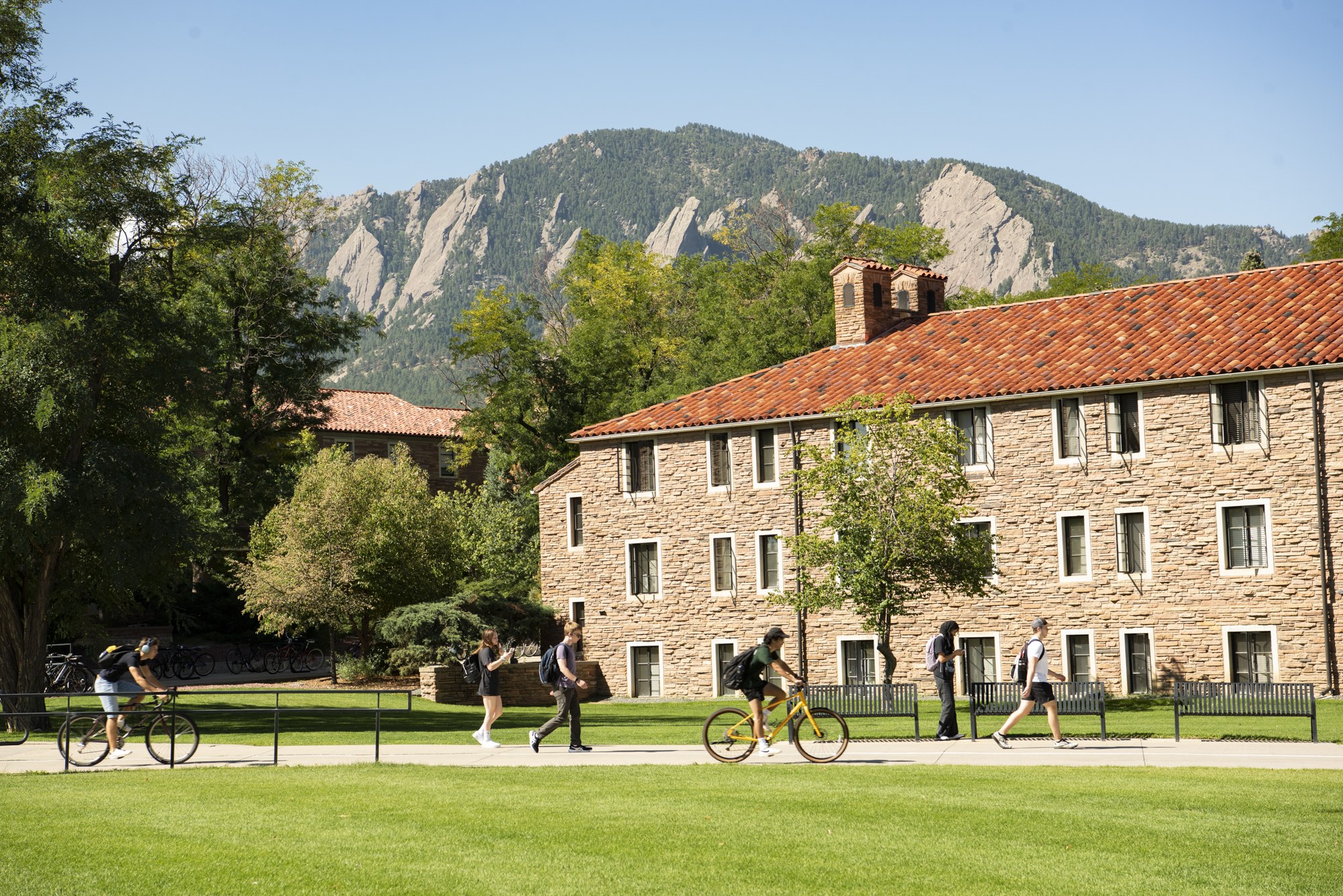CUSG meets to discuss amendments to election code
On Sept. 8, the legislative council met to review and amend the CUSG election codes to uphold the fairness and efficiency of CUSG elections. There were disputes between council members on amendment changes.

By Maryjane Glynn and Reid Dewez
The Legislative Council of CU Student Government (CUSG) met Thursday, to discuss potential amendment changes to the election code after last spring’s election tribunal found two tri-executive tickets guilty of infractions.
Election Commissioner Poornima Ramesh presented several possible amendment changes to the code. The changes being proposed aim to avoid controversies in the upcoming elections, as seen in the last tri-executive elections with the Inspire and Unity tickets.
The council members came prepared to discuss the amendment changes Ramesh had suggested. Each council member had a shared Google document with the original bylaws written out and the exact changes Ramesh thought were necessary to make.
During this discussion, Graduate and Professional Student Government (GPSG) Senator Jake Carias motioned to bring forward his own set of amendments, which several CUSG council members, including the Election Commissioner, claim they did not receive.
However, other members of the council had received the document with Carias’ amendment changes before the meeting and were able to add comments to his proposal.
Carias met with Ramesh two days prior to the meeting to discuss the election code, then presented his own set of proposals to the council at Thursday’s meeting.
Ramesh stated she was open to discussing the changes Carias wanted to make, but was not aware that he would be presenting amendment proposals as well.
“We did meet on Tuesday, but it was more to discuss the amendments that I just walked through with you guys, and just to clarify, I was not under the impression that Senator Carias was going to come with his own set of amendments today,” Ramesh said.
Presented below are the amendment changes Ramesh and Carias want to make to the election code. These changes are currently being discussed by the council and no changes have been made.
Ramesh believes that the CUSG election process should be changed to a ranked-choice voting method to reflect that of Boulder County. “I just think it’s a good idea to reflect Boulder County’s voting system as a student government in Boulder County,” she stated.
However, Carias states that, due to current legislation within the CUSG election codes, the ranked-choice style of voting cannot be adopted.
Although he claims he does not oppose this voting method, he points out,“There is an existing active legislation that requires a certain voting style that is written into this election code…which mandates a specific style of voting. If the legislative council would like to move forward with ranked-choice voting instead of the existing form of voting, we should probably consider the existing legislation.”
The next amendment Carias and Ramesh disagree on is the ticket system that the CUSG uses to elect its executives. Carias believes that the CUSG should forgo the ticket system in favor of individual candidates, but Ramesh believes that individual candidates will not garner enough attention or notoriety for informed elections.
Carias states that past council members have agreed that the ticket system itself is unnecessary and causes larger confusion. Instead, he believes Representatives-at-Large should run their own campaigns.
“The ticket system can actually kind of hinder our understanding of who our representative is and what values they stand for, and sometimes leads to further confusion regarding tickets, and I would just say based on the elections I saw when we didn’t have any representatives running our tickets. They were phenomenal elections,” Carias said.
Carias and Ramesh agree that bribery should be clearly defined in the Election Code.
“The reward and the action of voting must be established,” Ramesh said.
Carias’ proposed amendments, he advised that the punishment for bribery be decreased from a Class AA violation (12 points, enough to disqualify candidates) limiting the punishment for ticket members who commit this offense.
Ramesh opposed this amendment to the election code, stating, “I feel like it just sort of undermines the tribunal’s discretion and opens up a loophole that could easily be exploited by candidates.”
Senator Carias also proposed an infraction tribunal, which would act as a trial by jury for candidates who commit certain infractions and will require a jury of non-CUSG students to serve on it.
Ramesh saw this idea as ineffective because student participation in CUSG is relatively low, and the infraction tribunal requires a large commitment for non-CUSG members.
The bill was passed to second reading. The Legislative Council will hold a final vote next week.

